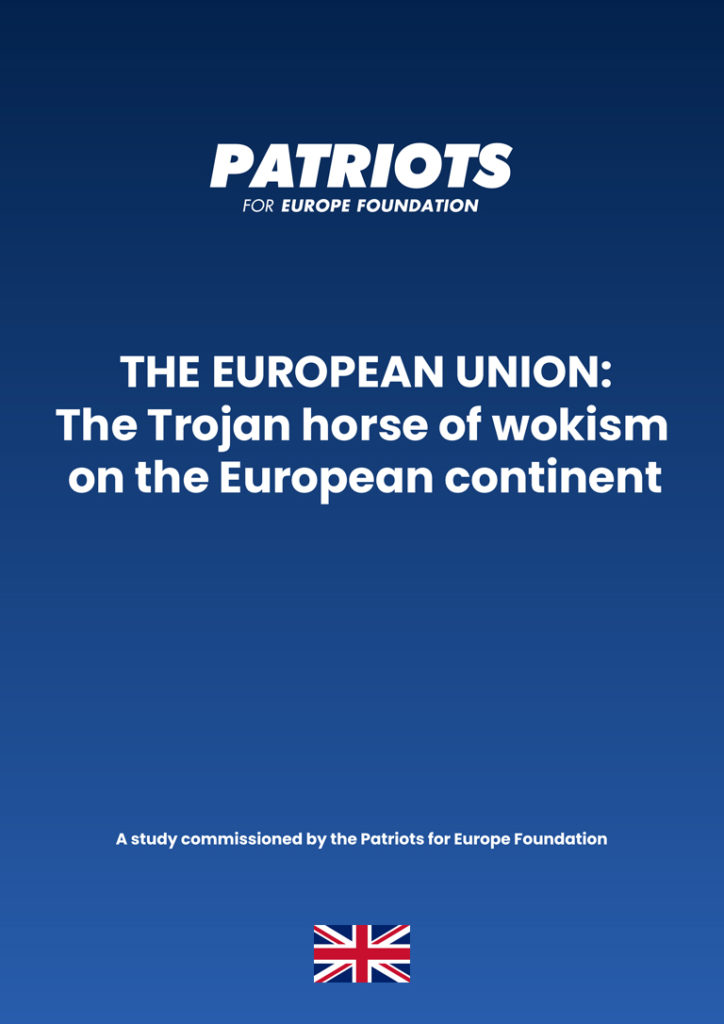
The European union : the trojan horse of wokism on the European continent
Not so long ago, in the context of political history, certain new terms burst into the public debate: woke, and wokeism. Fresh from the United States, they cover an ideological potpourri that combines ‘decolonialism’, gender theory, militant feminism, LGBT activism, climate ideology, the deconstruction of language seen as an instrument or indicator of discrimination…whose aim is to denounce the alleged systemic oppression of minorities who need to be ‘woken up’, so that they can combine their struggles to shake up the Western white patriarchal system of oppression that is supposed to be the source of all evils and discriminations. A number of essays have been writen on this subject already, and there is no question of adding to them here. However, we need to go back to the roots of this ideological movement, which is largely unknown to the general public, in order to understand what drives it and how it has infiltrated the institutions of the European Union.
In the beginning was the United States.
The United States obviously has its own history, very different from that of Europe. Anglo-Saxon Protestant emigrants settled in a sparsely populated continent, gradually driving out the indigenous populations and bringing in an enslaved population from Africa, in particular to work on the plantations. Successive waves of immigration from Europe brought Catholic peoples, particularly Italians and Irish, but the reins of power were long held by Anglo-Saxon Protestants. The country’s political and social history has therefore been marked by Protestant Anglo-Saxon pre-eminence, slavery and its aftermath, and the American Civil War. Because History lasts a long time. However, this history has very little to do with the history of the European continent. It is worth pointing this out before discussing an ideological corpus which has been imported wholesale from the United States to Europe.
The distant origin of the slang term ‘woke’, derived from awake, is said to come from an abolitionist movement born in 1860 across the Atlantic and known as “Wide Awake”. Later, Professor Booker Taliaferro Washington, a former slave, published a work entitled “The awakening of the Negro” in the pages of the monthly magazine The Atlantic (September 1896). He advocated a pragmatic, non-moralising vision of African-American emancipation. It was in this intellectual context that he became the first Principal of the Tuskeyee Normal School for Colored Teachers. His vision is emancipatory but non-confrontational.
The meaning changed in the Sixties. The Oxford English dictionary gives novelist William Melvin Kelley political authorship of the term “woke”, based on the title of an article published in 1962 in the New York Times: “If you’re woke, you dig it”.
But it was after the death of young Trayvon Benjamin Martin in July 2013 that the Black Lives Matters movement and the #hashtag of the same name were born. The movement was spearheaded by African-American rights activists Alicia Garza and Patrisse Cullors, who were also queer activists and were soon joined by Opal Tometi. This is undoubtedly the first sign of the “intersectionality” of these struggles, i.e. the combination of grievances of minorities who claim to be “systemically” discriminated against. The deaths of Michael Brown in August 2014 and George Floyd in May 2020 during a police stop and search have given a global dimension to the Black Lives Matter movement, whose work is supported by a foundation that describes itself as follows on its official website: “Black Lives Matter global foundation inc. was created and defines itself as an organization in the United States, the United Kingdom and Canada, and whose mission is to eradicate white supremacy and to strengthen local power to intervene in the violence inflicted on black communities by the state and the justice system”.
This definition has the merit of clarity: antagonism towards whites and denunciation of state and judicial structures as the support for systemic violence against black communities.
A study by Stéphane Buffetaut
Study commissioned and published by the Patriots for Europe Foundation.

